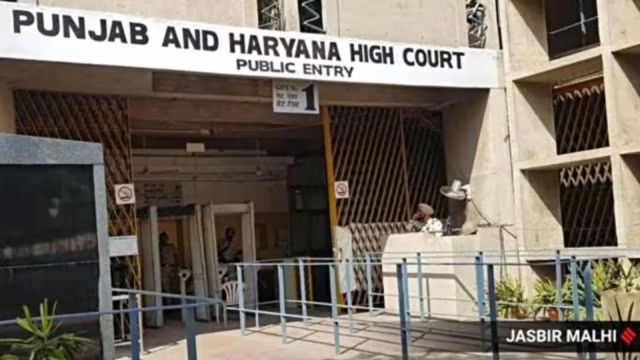26-year fight ends in defeat: High Court upholds retired Army Captain’s dismissal, backs govt’s authority
Court rules Chief Secretary has the authority to terminate service, says that once the expression ‘Government’ is used, the power can be delegated to any authority even below the rank of Chief Secretary.
 The court also underscored the limited scope of judicial intervention in disciplinary matters, citing Supreme Court precedents. (File Photo/Jasbir Malhi)
The court also underscored the limited scope of judicial intervention in disciplinary matters, citing Supreme Court precedents. (File Photo/Jasbir Malhi)The Punjab and Haryana High Court has upheld the dismissal of retired Army officer Captain S.P. Singh from the Zila Sainik Board, Rewari, rejecting his plea against his 1997 termination. The ruling, delivered by Justice Jagmohan Bansal, brings to a close a 26-year legal battle that continued even after Singh’s death.
Background: A Service Cut Short
Captain S.P. Singh, who retired from the Indian Army, was appointed Assistant Secretary of the Zila Sainik Board, Rewari, in 1983. In 1993, disciplinary proceedings were initiated against him, and he was found guilty on three charges, though one charge could not be proven. The Disciplinary Authority issued a show-cause notice, and despite Singh’s reply, he was dismissed from service on June 2, 1997. His appeal was rejected in 1999.
Singh challenged his dismissal in the Punjab and Haryana High Court, arguing that the termination order was issued by an incompetent authority—the Chief Secretary of Haryana—rather than the state government, as required under a 1975 notification. Captain Singh passed away during the prolonged legal battle, but his heirs continued to fight for the reversal of his dismissal, which would have allowed posthumous service benefits.
Legal Bone of Contention
The central argument in Singh’s petition was that, under the 1975 notification, only the government had the power to terminate him. His counsel, senior advocate R.K. Malik, contended that the dismissal order violated Article 311 of the Constitution, which protects civil servants from arbitrary removal.
However, the Haryana government, represented by Additional Advocate General Raman Sharma, argued that the Chief Secretary, as the highest executive officer, was empowered to issue the termination order. The state maintained that Singh had been given ample opportunity to defend himself during disciplinary proceedings, but he failed to do so.
High Court’s Ruling
Justice Bansal ruled that the Chief Secretary was competent to issue the termination order and that Singh’s dismissal followed due process. The court observed that as the order was passed by the Chief Secretary, it was difficult to conclude that it was passed by an incompetent authority. “Once expression ‘Government’ is used, the power can be delegated to any authority even below the rank of Chief Secretary.”
The court also underscored the limited scope of judicial intervention in disciplinary matters, citing Supreme Court precedents. It stated: “The High Court is not and cannot act as a second court of first appeal. The High Court, in exercise of its powers under Articles 226/227 of the Constitution of India, shall not venture into re-appreciation of the evidence. The High Court can only see whether: (a) the enquiry is held by a competent authority; (b) the enquiry is held according to the procedure prescribed in that behalf; (c) there is violation of the principles of natural justice in conducting the proceedings.”
Further, the judgment clarified that courts should not interfere with disciplinary orders unless they are disproportionate or lack legal basis. It cited a Supreme Court ruling stating that “On finding the evidence to be adequate and reliable during the departmental inquiry, the Disciplinary Authority has the discretion to impose appropriate punishment on the delinquent employee keeping in mind the gravity of the misconduct.”







